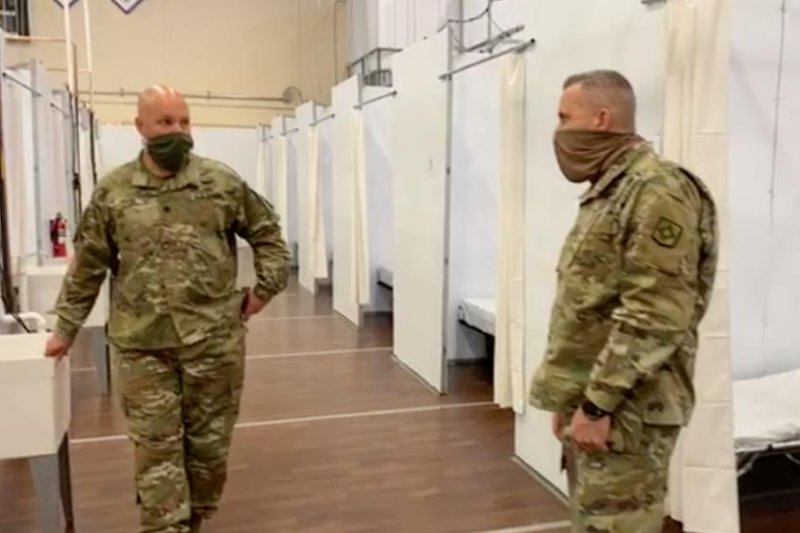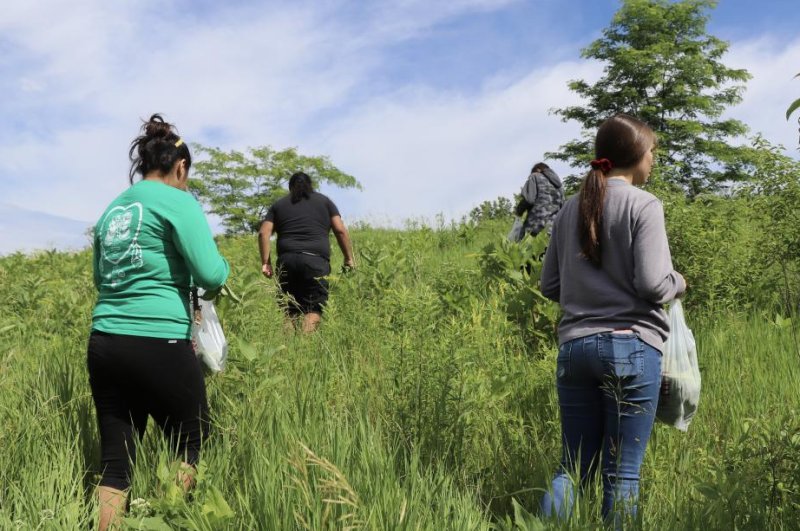Exclusive: Venezuela Socialists, opposition leaders begin secret talks amid pandemic - sources
Corina Pons, Mayela Armas
CARACAS (Reuters) - Allies of both Venezuelan President Nicolas Maduro and his bitter foe, opposition leader Juan Guaido, have secretly begun exploratory talks as concerns grow about the possible impact of the spread of the coronavirus, according to sources on both sides.
FILE PHOTO: Venezuela's President Nicolas Maduro speaks during a news conference at Miraflores Palace in Caracas, Venezuela, March 12, 2020. REUTERS/Manaure Quintero/File Photo
The discussions emerged from concerns about the respiratory illness COVID-19, hyperinflation and growing fuel shortages, as well as worries among some members of the ruling Socialist Party about how to ensure their political survival under a possible change of government as Washington tightens sanctions, the sources said.
The talks, which have no clear agenda, show that allies of both Maduro and Guaido remain unconvinced they can defeat the other amid a global pandemic and a broad U.S. sanctions program meant to push Maduro from office.
“There are two extremes: Maduro and those who believe that the virus will end Guaido’s leadership, and those on the other side (who) hope this crisis will bring down Maduro,” said an opposition legislator in favor of the rapprochement.
“I think we have to find solutions.”
Reuters was unable to determine when the talks began, where or how they are taking place, and how Maduro and Guaido view them. Seven sources, who represent both sides of Venezuela’s deep political divide, confirmed the talks.
Maduro and Guaido are competing with one another to help combat the effects of the pandemic, with each side convinced the outbreak will undermine the other politically, said the sources, who asked not to be identified.
Activists and rights groups around the world have urged the two factions to seek a truce in order to coordinate the delivery of aid and boost gasoline imports.
The U.S. State Department in March offered to begin lifting parts of the sanctions if members of the Socialist Party form an interim government without Maduro, a plan backed by Guaido but quickly shot down by the government.
Venezuela’s information ministry and Guaido’s press team did not reply to a request for comment about the current talks.
Guaido later on Tuesday denied the approach after the initial Reuters story was published. “This information is false,” he wrote on his Twitter account. “The democratic alternative is united in its cause and there is only one possible agreement to save Venezuela: to form a National Emergency Government, without drug traffickers in Miraflores, that can access international aid that we need.”
A source in Washington familiar with the matter told Reuters on Tuesday: “There are many private conversations among people in the regime and the opposition, especially since the U.S. announced the transition plan.” The person added: “And there are certainly efforts by Guaido and others to get more aid in to fight the pandemic. That’s led to more conversations by individuals in the opposition and individuals in the regime. What has not happened is any political negotiation.”
The State Department confirmed conversations between representatives of the opposition and officials in Maduro’s government.
“For weeks, Interim President Juan Guaido has been urging the former Maduro regime to take the pandemic more seriously and has been seeking ways to use Venezuelan official funds he can access in the United States to help the struggle against COVID-19,” said a representative of the Bureau of Western Hemisphere Affairs. “This has led to many conversations by representatives of international organizations with regime officials, and some direct conversations between opposition representatives and regime officials, seeking a practical way forward.”
Maduro has frequently said he is willing to hold dialogue.
“We are ready for dialogue, to understand one another and reach a humanitarian agreement to attend to the coronavirus (pandemic),” Maduro said during a televised broadcast over the weekend, without making reference to any specific set of talks.
Guaido, head of the national assembly who assumed an interim presidency last year after disavowing Maduro’s 2018 re-election, is recognized by the United States and more than 50 countries as the nation’s legitimate leader. But other powers such as China and Russia still back Maduro.
One source linked to the government acknowledged the talks were going on.
“There are proposals coming and going” between Maduro allies and members of the four principal opposition parties, said the source.
“There are approaches,” said one opposition deputy who is aware of the discussions. “There are key elements in the government that want to negotiate their salvation.”
The two sides last year participated in a dialogue brokered by Norway in which the opposition had pressed for a new presidential election. But Maduro’s side walked away from the process in protest of U.S. sanctions.
Maduro assures his government has controlled the coronavirus outbreak in Venezuela with the support of China, while Guaido accuses him of using the pandemic as an excuse for disastrous economic policies.
A senior Trump admninistration official said Maduro alone was responsible for “the humanitarian toll in Venezuela, compounded by the recent COVID-19 crisis and the gas shortages.”
Venezuela as of Monday had reported 285 coronavirus infections. The United Nations has called it one of the most vulnerable countries in the world to the virus due to the lack of soap and water in hospitals and the overall impoverishment of the population.
Guaido, who controls Venezuelan government funds held in offshore accounts, is seeking to provide $20 million to the Pan American Health Organization to acquire supplies, according to three sources.
But Maduro’s government is aiming to block the operation via the United Nations, which still recognizes his government.
The Venezuelan offices of the Pan American Health Organization and the United Nations did not respond to requests for comment.
Guaido has offered to pay $100 per month to doctors and nurses with the help of the Organization of American States, a mechanism that has not yet started.
Reporting by Corina Pons, Mayela Armas and Sarah Kinosian in Caracas, and Humeyra Pamuk and Matt Spetalnick in Washington; Writing by Brian Ellsworth; Editing by Alistair Bell and Matthew Lewis












